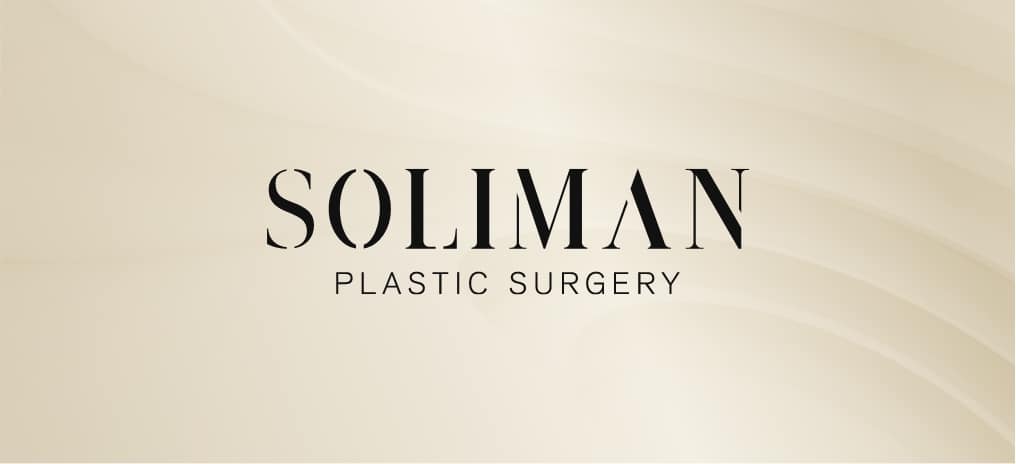Essential Nutrition and Lifestyle Strategies Post-DIEP Flap Surgery
The recovery after DIEP flap surgery—an increasingly popular procedure for breast reconstruction—demands not just physical resilience but a complex post-operative care plan that nurtures the body back to its full strength. This surgery, which stands for Deep Inferior Epigastric Perforator flap, is a sophisticated method offering the dual benefits of reconstructing the breast using the patient’s own abdominal tissue, while potentially improving the abdomen’s appearance, akin to the results of a tummy tuck – abdominoplasty. But the path to optimal healing involves much more than just surgical success; it necessitates an approach that embraces nutrition and lifestyle adjustments tailored to support and expedite the recovery process.
In this blog, Sydney Specialist Plastic Surgeon Dr Bish Soliman will get into the essential role that post-operative care plays in navigating the recovery landscape. Recovery from DIEP flap surgery is not just about the physical healing of surgical sites—it’s a multidimensional process that encompasses the body, mind, and spirit. Proper nutrition, for instance, is not only about eating well; it’s about strategically fuelling the body with the right nutrients to enhance wound healing, reduce inflammation, and boost the immune system. Similarly, lifestyle choices post-surgery—from engaging in gentle exercises to managing stress levels—play a crucial role in not just ensuring a smooth recovery but in also laying down the foundation for a healthier life post-recovery.
Download Dr Bish Soliman Cosmetic Breast Surgery Guide

Nutrition Guide for Recovery after DIEP Flap Surgery
During recovery after undergoing DIEP flap surgery, it’s crucial to understand that your body undergoes a significant healing process, requiring optimal nutritional support. Nutrition is the foundation of a successful recovery, providing the necessary tools for your body to repair tissues, reduce inflammation, and strengthen the immune system. Next, Dr Soliman will explore essential macro and micronutrients, the significance of hydration, and provide a sample meal plan tailored to support your healing journey.
Macro and Micronutrients Essential for Healing
Protein is essential in the post-surgery healing process, serving as the primary building block for tissue repair and muscle strength. High-quality protein sources include lean meats like chicken, turkey, and fish, which are rich in omega-3 fatty acids known for their anti-inflammatory properties. Plant-based proteins such as lentils, beans, tofu, and quinoa are also excellent choices, offering a spectrum of essential amino acids along with fibre, which supports digestive health.
Vitamins and Minerals
- Vitamin C: A key player in collagen formation, vitamin C is crucial for wound healing. Sources include citrus fruits, strawberries, bell peppers, and dark leafy greens.
- Vitamin A: Essential for cell growth and the immune system. Find it in sweet potatoes, carrots, kale, and spinach.
- Zinc: Supports the immune system and plays a critical role in wound healing. Good sources are nuts, seeds, legumes, and whole grains.
- Iron: Vital for energy and reducing fatigue, iron can be found in lean red meats, poultry, fish, lentils, and fortified cereals.
- Omega-3 Fatty Acids: These reduce inflammation and are found in fatty fish like salmon, chia seeds, flaxseeds, and walnuts.
Hydration
Hydration is often overlooked but is critical for recovery. Water is essential for all bodily functions, including transporting nutrients to healing tissues and eliminating waste products. Adequate hydration aids in maintaining skin elasticity, which is crucial for healing wounds. It also helps to keep the digestive system moving, reducing the risk of constipation, a common side effect of medication and reduced mobility post-surgery.
Aim for at least 8-10 glasses of water a day, and consider incorporating hydrating foods like cucumbers, zucchini, watermelon, and oranges into your diet. Herbal teas can also be a soothing way to increase your fluid intake, but be cautious with caffeine as it can dehydrate.
Sample Meal Plan (Do we need this??)
This sample meal plan is designed to incorporate the healing nutrients mentioned above, focusing on balanced meals to support your body’s recovery needs:
Day 1
- Breakfast: Scrambled eggs with spinach and mushrooms, whole-grain toast, and an orange.
- Lunch: Grilled chicken breast salad with mixed greens, cherry tomatoes, avocado, and a vinaigrette dressing rich in omega-3.
- Snack: Greek yogurt with a handful of strawberries and a sprinkle of chia seeds.
- Dinner: Baked salmon, quinoa, and steamed broccoli. A side of sweet potato mash for a beta-carotene boost.
Day 2
- Breakfast: Protein-packed smoothie with whey or pea protein, mixed berries, a handful of spinach, almond milk, and a tablespoon of flaxseed.
- Lunch: Lentil soup with carrots, celery, and kale. Serve with a side of whole-grain bread.
- Snack: A small bowl of mixed nuts and a sliced apple.
- Dinner: Turkey meatballs in a tomato-based sauce with zucchini noodles and a side salad.
Day 3
- Breakfast: Oatmeal cooked in almond milk, topped with sliced bananas and walnuts.
- Lunch: Tuna salad stuffed in a whole-wheat pita with lettuce and cucumber. Serve with carrot sticks on the side.
- Snack: Hummus with sliced bell peppers and whole-grain crackers.
- Dinner: Stir-fried tofu with a mix of colourful vegetables (bell peppers, broccoli, snap peas) over brown rice.
Tips for Implementing Your Nutritional Plan
- Listen to your body: Appetite may vary post-surgery. Start with small, nutrient-dense meals and snacks, and gradually increase as your appetite improves.
- Prep in advance: Prepare meals and snacks ahead of time to ensure you have healthy options readily available.
- Stay flexible: It’s okay to adjust meals based on how you feel and your preferences. The key is to maintain a balance of nutrients to support healing.
Lifestyle Modifications for Optimal Recovery
Recovery from DIEP flap surgery extends beyond the operating room and nutritional adjustments. Integrating gentle physical activity, adopting stress management techniques, and prioritising sleep and rest are pivotal steps towards optimal healing. These lifestyle modifications not only support the physical recovery process but also cater to your mental and emotional well-being, creating a harmonious healing environment for your body.
Physical Activity
Post-surgery, your body needs time to heal, making it essential to reintroduce physical activities cautiously. Initially, focus on light movements that promote circulation without straining the surgery site.
- Walking: Start with short, leisurely walks around your home or neighbourhood. Gradually increase the distance and pace as your strength and stamina improve.
- Stretching: Gentle stretching exercises can help maintain flexibility and reduce stiffness. Focus on areas away from the surgery site, ensuring no discomfort.
- Pelvic floor exercises: Engaging and relaxing the pelvic floor muscles can be beneficial, especially considering the abdominal area’s involvement in the surgery.
- Guided exercises: Eventually, incorporate low-impact exercises designed by a physical therapist or a qualified professional who understands your specific recovery needs.
Always consult with Dr Soliman before starting any new physical activity to ensure it’s safe for your stage of recovery.
Stress Management Techniques
Recovery can be a taxing journey, not just physically but emotionally as well. Implementing stress management techniques can significantly impact your healing process by fostering a sense of calm and reducing the body’s stress responses.
- Meditation: Regular meditation can centre your thoughts, reduce anxiety, and promote a state of relaxation. Start with short guided meditations, focusing on breath and mindfulness.
- Breathing exercises: Deep breathing techniques, such as diaphragmatic breathing, can help alleviate stress. Practice taking slow, deep breaths to calm the mind and reduce tension.
- Gentle yoga: Yoga, with a focus on gentle poses and movements, can aid in stress reduction while promoting flexibility and strength. Look for yoga practices tailored for post-operative recovery.
- Journaling: Writing down your thoughts, feelings, and experiences can serve as a therapeutic outlet, helping to manage stress and process your recovery journey.
Incorporating these practices into your daily routine can not only aid in your physical recovery but also enhance your emotional resilience and well-being.
Sleep and Rest
The significance of sleep in the healing process cannot be overstated. During sleep, your body undergoes critical repair processes, including muscle repair, tissue growth, and hormone regulation, which are essential for recovery.
- Establish a sleep routine: Try to go to bed and wake up at the same time each day to regulate your body’s internal clock.
- Create a restful environment: Ensure your bedroom is quiet, dark, and at a comfortable temperature. Consider using earplugs, eye shades, or white noise machines to create a conducive sleep environment.
- Limit screen time before bed: The blue light from screens can interfere with your ability to fall asleep. Aim to disconnect from electronic devices at least an hour before bedtime.
- Nap wisely: While naps can be beneficial for recovery, long or late naps can disrupt your nighttime sleep. If you need to nap, aim for short naps (20-30 minutes) earlier in the day.
Understanding the crucial role of sleep and rest in your recovery emphasises the need for a balanced approach to your healing journey. By prioritising quality sleep, adopting stress management practices, and reintroducing physical activity gently, you support your body’s natural healing processes, paving the way for a smoother and more effective recovery.
These lifestyle modifications are not just steps towards recovery; they are investments in your overall health and well-being, ensuring you emerge from this journey stronger and more resilient.
What to Avoid during Recovery after DIEP Flap Surgery
The process of recovery after DIEP flap surgery requires not only embracing positive lifestyle changes and nutritious eating habits but also recognising and avoiding certain foods, substances, and activities that could hinder your healing process. While focusing on what to incorporate into your recovery plan is essential, being aware of what to avoid is equally crucial to prevent complications, ensure a smooth healing journey, and optimise overall health.
Foods to Avoid
- Processed and High-Sugar Foods: Foods high in sugar and processed carbohydrates can lead to inflammation, potentially slowing down the healing process. These foods, including sweets, baked goods, and processed snacks, can also contribute to weight gain and disrupt your blood sugar levels, further complicating recovery.
- High-Sodium Foods: Excessive salt intake can lead to water retention, swelling, and increased blood pressure, which can be particularly problematic when your body is healing. Avoid processed meats, canned foods, and snacks high in sodium.
- Trans Fats and Fried Foods: Trans fats, found in fried foods, some baked goods, and processed snack foods, can increase your risk of heart disease and inflammation. Opt for whole, unprocessed foods rich in natural nutrients instead.
Substances to Avoid
- Alcohol: Alcohol consumption can impair your body’s healing capacity, dehydrate you, and interact negatively with medications prescribed for pain and infection prevention. It’s advisable to avoid alcohol entirely during the recovery period to ensure optimal healing.
- Tobacco and Smoking: Smoking tobacco or using nicotine products constricts blood vessels, reduces blood flow to the surgical site, and compromises oxygen delivery to tissues, all of which are critical for healing. Smoking also increases the risk of surgical complications, including infections and delayed wound healing.
Activities to Avoid
- Strenuous Exercise and Heavy Lifting: While gentle movement and specific exercises may be beneficial during recovery, engaging in strenuous activities or lifting heavy objects too soon can strain the surgery site, lead to swelling, and potentially cause complications. Always follow Dr Bish Soliman’s guidelines regarding physical activity and restrictions post-surgery.
- Excessive Stress: High levels of stress can negatively impact your immune system and slow down the healing process. While it’s impossible to avoid all stress, managing stress through mindfulness, relaxation techniques, and adequate rest is vital.
FAQs about Recovery after DIEP Breast Reconstruction
How do I strengthen my core after DIEP?
- Strengthening your core after DIEP flap surgery should be approached gradually and with guidance from Dr Soliman. Initially, focus on gentle pelvic floor exercises to engage and strengthen the lower abdomen without straining the surgery area. As you recover, you may gradually introduce light abdominal exercises such as pelvic tilts and deep breathing exercises to enhance core stability. It’s important to wait until Dr Soliman or physical therapist gives you the green light to start these exercises to avoid any risks to your healing process.
What do I need for DIEP flap recovery?
- For DIEP flap recovery, you’ll need a combination of practical items and lifestyle adjustments to ensure a smooth healing process. Comfortable, loose clothing that is easy to put on and take off is essential, as well as a supportive but gentle bra that doesn’t put pressure on the surgery sites. Keep essentials like water, medications, and snacks within easy reach to stay hydrated and nourished. Setting up a comfortable recovery area with pillows and blankets for proper rest and sleep is also crucial. Additionally, having a support system in place for emotional support and assistance with daily tasks can significantly enhance your recovery experience.
Can I drink coffee after DIEP flap surgery?
- You can consume coffee in moderation after DIEP flap surgery, but it’s important to be mindful of its effects on your body during the recovery process. Coffee, being a diuretic, can lead to dehydration, so it’s crucial to balance your coffee intake with plenty of water and hydrating fluids to maintain adequate hydration levels. Also, consider that caffeine can sometimes exacerbate symptoms such as anxiety or sleep disturbances, which could affect your overall recovery. If you choose to drink coffee, monitor your body’s response and adjust your intake accordingly to ensure it doesn’t interfere with your healing process.
Further Reading about DIEP Breast Surgery with Dr Bish Soliman
- Read Dr Bish Soliman’s Blog about Arm Exercises Post DIEP Flap Surgery
- Read Dr Bish Soliman’s Blog about Why Dr Soliman Prefers DIEP Breast Reconstruction?
- Read Dr Bish Soliman’s Blog about Who Are the Best DIEP Breast Reconstruction Surgeons in the World?
- Read Dr Bish Soliman’s Blog about Medicare for DIEP Breast Reconstruction
- Read Dr Bish Soliman’s Blog about Recovery after Breast Reconstruction Surgery (DIEP)



